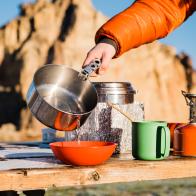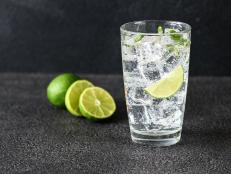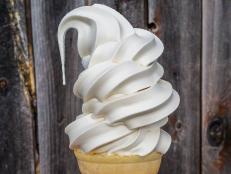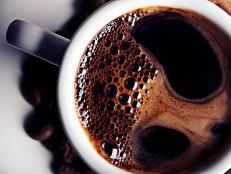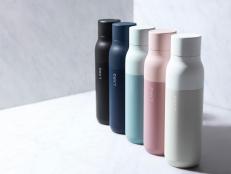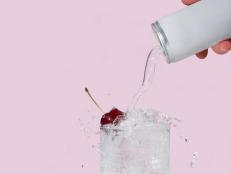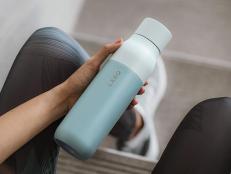Testing the Waters (the Maple Waters Trend, That Is)

Stephen Johnson, 2014, Television Food Network, G.P. All Rights Reserved
There is certainly no shortage of trendy ways to hydrate yourself on a hot summer day: smoothies, energy drinks, kombucha teas, vitamin-infused waters and, lest we forget, the ubiquitous coconut waters. Not to mention the boring old plain water that comes out of your tap -- free. But if you're thirsty for yet another option, you're in luck. The latest beverage to show up at the grocery store is maple water.
Not to be confused with sweet, sticky maple syrup, maple water is basically the thin (supposedly not sticky) sap that is tapped directly out of the tree. "It takes 40 gallons of maple water to boil down to one gallon of syrup," explains Kate Weiler, Co-Founder of Drink Maple. "People think maple water is going to overly sweet but are pleasantly surprised by its refreshing quality."
Proponents of the stuff are quick to point out its numerous nutritional benefits. An eight-ounce glass contains just 15 calories and 3 grams of naturally occurring sugar. "Research indicates that maple sap provides 40 trace minerals and nutrients not available from tap water," says Valentina Cugnasca, co-founder and CEO of Vertical Water. "A serving of maple water has more manganese than a cup of kale."
Sounds impressive, although manganese is a mineral that is easily obtained from foods (including nuts and whole grains) and not exactly a common deficiency.
So while maple water isn't an unhealthy choice, is it necessarily the healthiest way to rehydrate? "All of these beverages have pros and cons," says Leslie Bonci, MPH, RD, director of sports medicine at University of Pittsburgh Medical Center. "Maple water is lower in calories than vitamin water, has less sugar and fewer calories than most energy drinks, but it’s lower in potassium than coconut water and is not a great source of electrolytes."
Know too, that procuring maple water isn’t harmful to the trees -- and may even help sustain the forest by giving tree owners a new source of revenue. And given that the drinks are often produced and bottled in North America, maple water has a smaller carbon footprint than, say, coconut water that has traveled halfway around the world. The bottom line is that if you like the taste (and can stomach the somewhat hefty price tag), maple water is a fine way to quench your thirst. But Bonci wonders if this trend will go the distance: "Why not just spring for real maple syrup on a waffle to get the flavor and nutrients -- and put plain water in your bottle?"
Sally Wadyka is a Boulder, Colorado-based journalist who writes about nutrition, health and wellness.

















